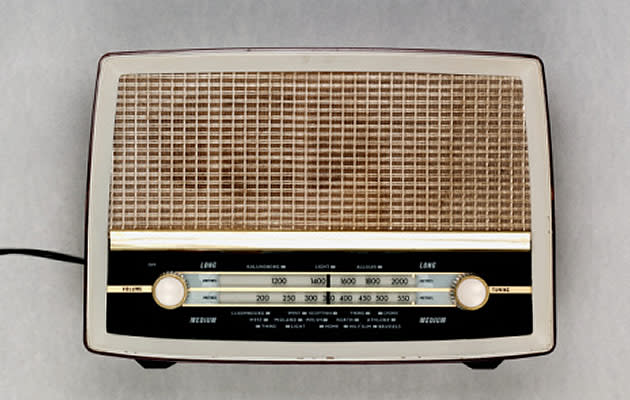Rediffusion: An unnecessary death?
"Mrs Grace Fu, Senior Minister of State for Information, Communications and the Arts, said the closure of Redifussion will be a loss to many but 'demands are changing and it is a commercial decision'." — Straits Times, 10 April, 2012.
Rediffusion is a radio service which began life in Singapore in 1949, just after the war. It gained popularity among Singapore's ethnic Chinese community with its programmes in Hokkien, Teochew and Cantonese. The government's focus on promoting bilingualism, basically English and a mother tongue, saw dialect programmes banned from the air waves in 1982. That decision was changed in the late 1990s to allow several hours of dialect programmes.
Now, after 63 years in operation, Rediffusion has announced it is shutting down on 30 April. Pleas for help from the station have so far fallen on deaf ears. The government, as Fu's comments seem to indicate, is willing to let "commercial decision" or market forces decide the fate of this icon of Singapore's cultural life.
Supporters of the service, especially the more senior citizens, see its impending demise as yet another of our heritage icons being delegated to the footnotes of history.
The government's Budget 2012 was titled, "An Inclusive Society, A Stronger Singapore". Numerous measures among all the ministries were announced to take Singapore forward in its relentless pursuit of a better future for all. At the core of its message — as its theme says — is an inclusive society.
But to be such a society requires more than just closing the income gap, or providing subsidies to public housing, or even to making healthcare affordable, laudable as these Budget goals are. It also requires us to preserve and support the things which provide the softer edges to life, especially in a fast-paced society like Singapore. Music, the arts, poetry, literature, languages. Things which nourish the human soul.
In the case of Rediffusion, for 63 years it was the balm which soothed the spirits of our senior citizens who took comfort that in a society which progresses at breakneck speed, a little haven for temporary escape was available. The familiar sounds of local dialects, even if they were a few minutes of news bulletins, brought a sense of identity and belongingness.
Rediffusion service, channelled through that little box stuck at a corner of the wall in homes all over the island in its heyday, streamed constantly, 24-hours a day, its broadcasts permeating the households, as housewives cooked dinner, fathers read the papers, or families just taking it easy after a day's work. That was how it was for me when I was a kid, when I visited my grandparents' home. Later, we subscribed to the service at our own home too.
There are not many icons left which we can preserve in Singapore. The concerns expressed by Singaporeans in recent times about the eradication of these vestiges of our heritage is a good one to have and the government should seriously consider the implications of their absence — especially when we talk of being an inclusive society. Nothing gives us more pride and a sense of identity than those things which we have grown up and are familiar with.
Should such things be left to "commercial decisions"? It is a question which our society has not fully discussed. Perhaps it is time to do so.
As for Rediffusion, there is an easy solution to what is, in my opinion, an unnecessary death. The strength of its service is in its local dialect programmes, which has been curbed, as mentioned above. A change in government policy will allow Rediffusion to survive. The question is: will the government see the importance of preserving this icon and its symbolic significance?
When queried, the Media Development Authority (MDA) said, "Allowing full dialect content on all mediums would undermine our ongoing efforts to promote Mandarin." Well, firstly, no one is asking for such content to be allowed "on all mediums". Second, it is ironic that in its insistence on promoting Mandarin and thus putting a lid on dialect programmes, the MDA seems oblivious that its actions are alienating and depriving our senior folks of precisely the very thing which would include them in our inclusive society — familiarity with their own cultural heritage.
Put another way, no one can feel a sense of belonging if the very thing which gives them exactly that is being curbed, disallowed or banned. It may, instead, create disenchantment and even a feeling of abandonment by society.
At this point in our development, and as Singapore in a few years turns 50, let us pause and decide how much we value and honour our past, and what truly gives us that sense of belonging.
I suspect that most of us would rather preserve that which our grandparents and parents grew up with, than to have these erased or replaced because "commercial decisions" dictate it be so.
As for the government, perhaps it should be reminded that its duties do not only include the economic but also things which are more intangible but no less intrinsically important to us as citizens of this land. Its duty also include preserving these.
Andrew helms publichouse.sg as Editor-in-Chief. His writings have been reproduced in other publications, including the Australian Housing Journal in 2010. He was nominated by Yahoo! Singapore as one of Singapore's most influential media persons in 2011.



